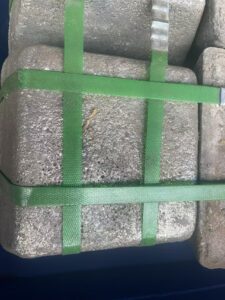At the end of June 2022, Mineworx announced the successful completion of its testing of the optimization stage at its pilot plant in Tennessee, United States. They had begun operations at the pilot plant in April 2022.
This news was met with much excitement, as this signifies the beginning of the flow of the major commercial business. The commercial plants have been designed in a modular fashion, and the first of four modular commercial units is in the process of being built. Mineworx’s eventual target of $100 million revenue per annum is indeed achievable, with the first commercial plant module expected to produce a quarter of the production capacity. The expectation of $25 million revenue from this first plant module, is expected to be realized.
Significant money is set to be made with their proprietary CleanTech, innovative technology. With their proprietary method, Mineworx have focused on extracting platinum and palladium from diesel catalytic converters with an impressive >90% yield. That this technology recycles otherwise hazardous elements in an eco-friendly manner and so improves the environment is an amazing achievement, especially given that the industry is usually not clean, to say the very least. That the global community has a desire to move towards green technology is extremely positive for the Company’s prospects.
Given all of this, Mineworx was already set to be a global leader in precious metal extraction, with a focus on platinum and palladium, and diesel catalytic converter recycling. This is no small feat.
But, now there is more.

In August 2022, the company announced a major breakthrough, that in addition to platinum and palladium, Mineworx is now able to successfully recover rhodium from used diesel catalytic converters.
Rhodium is one of the rarest and is the most expensive of the precious metals. The spot price for rhodium is currently $14,250.00 per ounce. Compare this to platinum, which is $866 per ounce, palladium, which is $2,141 per ounce, and gold, which is $1,635 per ounce.
The high price is due to its rarity and the immense global demand from the automotive industry, in addition to newer regulations for cleaner emissions in the automotive industry, particularly in China and Europe. Rhodium plays a major role in reducing harmful nitrogen oxide gases created by automotive exhausts.
As an ultra-shiny and corrosion-resistant metal, rhodium is also used in the jewellery, chemical and electrical industries, among its other interesting uses. The majority of rhodium however, around 80% of the world’s supply, is used in diesel catalytic converter manufacturing. This bodes well for Mineworx of course.
The Company is planning full-scale testing using its pilot plant, in order to confirm the commercial viability of these promising initial results. Some modifications were made to the pilot plant in order to implement this new process, and according to management these modifications did not adversely impact the operating efficiency or processing costs of the existing processes for platinum and palladium. There is every reason to expect that Mineworx will successfully add rhodium to its list of precious metals to be extracted via their CleanTech proprietary process.
The potential for Mineworx to extract rhodium and palladium in abundance is a total game changer. Rhodium and palladium are incredibly scarce, particularly rhodium, not to mention they are affected by precarious political situations in the two countries which are the major providers of these metals: South Africa and Russia.
Russia is problematic as a partner for obvious reasons – war and sanctions. Its rhodium supply for 2022, for example, is non-existent, while in previous years it has always been the second-biggest supplier of rhodium after South Africa. It is also the second-biggest supplier of palladium, following South Africa. There is also, one could say, a low desire to do business with Russia.
South Africa is becoming more and more problematic as a partner given its growing electricity crisis and serious socio-economic problems, notwithstanding the fact that it is the biggest producer in the world of rhodium and palladium. Global trust in South Africa is, at the very least, insecure.
The extremely high value of rhodium, coupled with global economic downturn especially during the recent pandemic-induced lockdowns, created a phenomenon of catalytic converter theft. Rhodium production was gravely affected by the lockdowns of 2020. This is especially true of South Africa and remains a concern given the country is a high-risk in terms of reliability. The theft of catalytic converters, often done by gangs, was happening worldwide, as the demand is, and will remain, high.
Platinum Group Metals (PGM) producers in South Africa generally extract, via mining, a mix of metals comprised roughly of 60% platinum, 30% palladium and 10% rhodium. Even if South Africa performs at its absolute best, and the prices of rhodium and palladium skyrocket, a mining operation for the purpose of extracting rhodium and palladium would not make sense as the geology simply would not justify the operation. The main business would always have to be platinum.
Suffice to say that mining as a source for rhodium or palladium, does not suffice for the demand. However, the extraction of these precious metals from diesel catalytic converters which would otherwise be harmful waste is, if it can be put like this, like “striking gold”.
The added business potential here for Mineworx, as they add rhodium to their list of extracted precious metals, is astounding. Mineworx President and CEO Greg Pendura, stated “this is exciting news for the company as it allows us to source a broader range of feedstock and to recover a highly valued metal. We have a talented research team whose efforts continue to deliver new opportunities for the Company.”






